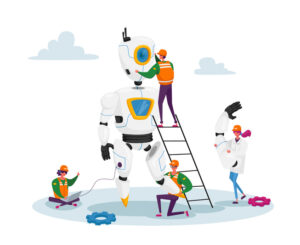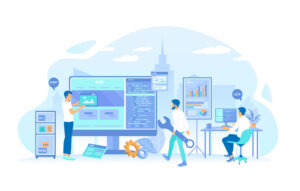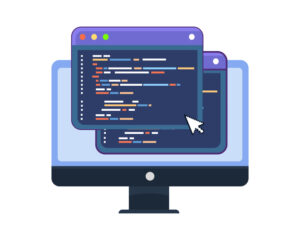Robotic Process Automation (RPA) is revolutionizing the way businesses operate, and RPA developers are the wizards behind the curtain. These professionals are the masterminds who design, build, and implement RPA systems that help automate repetitive tasks, streamlining operations and saving businesses time and money. But what exactly is an RPA developer, and why should you care if you’re in tech?
What is an RPA Developer?
An RPA developer specializes in creating software robots, or “bots,” that mimic human actions to carry out tasks across digital systems. Think of them as the creators of an automated workforce that can perform mundane tasks like data entry, invoice processing, and customer service inquiries — freeing up human employees to focus on more strategic, value-added activities. If you’ve ever dreamed of automating the boring stuff, RPA development is where the magic happens.
Why RPA Development is Booming
The Shift Toward Automation
Automation is no longer just a luxury — it’s a necessity. With companies under pressure to cut costs and increase efficiency, RPA developers are in high demand. Plus, this growing need for automation is transforming industries across the board, from banking and finance to healthcare and customer service. If you’re an IT pro, it’s time to consider RPA development as your next big career move.Reduced Human Error
Humans make mistakes (it’s part of our charm), but bots don’t. By automating repetitive processes, RPA reduces the likelihood of errors and improves overall accuracy. Additionally, businesses can rely on bots to perform tasks with precision, minimizing the risk of costly mistakes that often come with manual processes.Increased Productivity
RPA doesn’t need coffee breaks, bathroom breaks, or sleep — bots work 24/7, never getting tired. This leads to significant boosts in productivity and efficiency. RPA developers build systems that enable organizations to run smoothly around the clock, allowing human workers to focus on more complex and rewarding work.Cost Savings
When repetitive tasks are automated, companies can save money. The cost of hiring and training new staff for these tasks is eliminated, and businesses can shift their resources to higher-value initiatives. RPA development leads to tangible cost reductions — and if you’re an RPA developer, you’re helping make that happen.
Key Roles in RPA Development
-
RPA Developer
RPA developers design, build, and implement RPA bots. They work with platforms like UiPath, Automation Anywhere, or Blue Prism to create and configure bots that automate processes. If you have a knack for coding and problem-solving, this could be the role for you. -
RPA Solution Architect
Solution architects oversee the larger RPA strategy, ensuring that the right tools, platforms, and processes are in place to successfully deploy automation across the organization. They work closely with RPA developers to make sure the systems are scalable and integrated into the overall tech infrastructure. -
RPA Business Analyst
The business analyst helps identify which processes are ripe for automation. They work with stakeholders to map out workflows, ensuring that RPA systems are deployed where they will have the most impact. Essentially, they’re the matchmakers between business needs and automation solutions. -
RPA Tester
Just because bots don’t need sleep doesn’t mean they don’t need testing. RPA testers ensure that automated systems work as expected, checking for bugs and ensuring the bots perform their tasks correctly. Furthermore, hey also test bots against real-world scenarios to make sure they handle edge cases smoothly.
How to Succeed as an RPA Developer
Master RPA Platforms
Familiarity with popular RPA tools like UiPath, Automation Anywhere, and Blue Prism is essential. These platforms are the backbone of RPA development, and proficiency in them will set you apart as an expert in the field.Get Comfortable with Coding
While you don’t need to be the next Mark Zuckerberg, understanding programming languages like Python, C#, or JavaScript is crucial for an RPA developer. Coding is at the heart of building the logic that drives the automation process.Understand Business Processes
RPA is all about automating business processes, so a solid understanding of how businesses operate and what makes certain processes ideal for automation is key. You’ll need to think like a business analyst to figure out where automation will have the most impact.Be Solution-Oriented
As an RPA developer, you’ll face challenges that require creative solutions. The ability to troubleshoot, debug, and find innovative ways to solve problems will make you a valuable asset to any team.
Challenges to Keep in Mind
Managing Complex Systems
As RPA bots scale across an organization, managing multiple systems and ensuring they work together can become complex. Balancing automation with manual processes requires careful planning and strategic thinking.Customization and Maintenance
Not every process is a perfect fit for RPA. Sometimes, you’ll need to customize bots to handle exceptions or unforeseen scenarios. And once bots are deployed, they need maintenance and updates — just like any other software.Change Management
When businesses automate processes, there’s often resistance from employees who fear that their jobs might be at risk. As an RPA developer, you’ll need to work closely with stakeholders to ensure the bots are seen as productivity boosters rather than job destroyers.

Conclusion
RPA development is one of the most exciting fields in tech right now, and for good reason. Automation is transforming industries, making processes faster, cheaper, and more accurate. As an RPA developer, you have the opportunity to shape this transformation, creating systems that help businesses do more with less. If you’re ready to dive into the world of bots and automation, there’s never been a better time to get started. The future of work is automated — and you can be the one making it happen.








